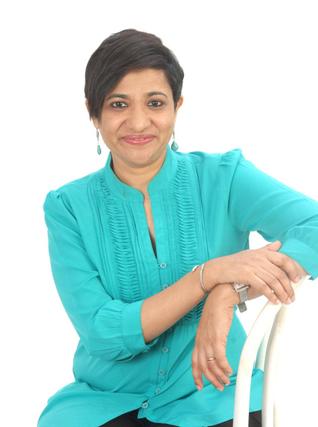
Speech and behaviour analyst Radhika Poovayya says people with communication disorders are often neglected because their problems aren’t obvious to the eye
As Radhika Poovayya peeps into each little colourful nook, there’s Yogi, and there’s Nishita — one sitting diligently at a table with the sweetest smile on his face, the other running in abandon around colourful toys — but both trying to give voice to words that the speech therapist is enunciating with great care. Radhika knows what’s happening with each child, what needs to be done next for the smiling four-year-old , and what to do after the three-year-old learns to say her name.
“No one considers a person’s inability to communicate to be a serious problem. It can really harm that person,” says Radhika. It’s been the premise of her work for over 26 years. Radhika Poovayya is many people rolled into one comprehensive resource — a speech pathologist, a consultant specialising in autism, communication disorders, and behaviour analysis for children and adults. “All human beings are the same. Our behaviour has a law. And the behaviour of every child can be set right,” believes Radhika.
At her Samvaad Institute of Speech and Hearing in Hebbal, Radhika’s therapists work with children with hearing impairment, stuttering and stammering problems, cerebral palsy, voice and speech clarity problems, developmental disabilities, patients of head injuries in accidents and patients of stroke who’ve lost their cognitive and speaking abilities. “Because people can’t ‘see’ their disability they do not get empathy. Our approach is right-based, not sympathy-based. We provide organised and individual therapy. We want to give good therapy that is accountable. We set targets, record data regularly, and are goal driven,” explains Radhika. The role parents play in the training and therapy of such children is really huge, reiterates Radhika. So she allows parents to be part of the therapy sessions and trains parents too to help the child at home. “Parents need to have a different approach to raise such kids. Some come to us, having decided already that the child is incapable of doing anything or believing the child is incapable of speaking.”
What got her going in the field was her love for children and a desire to work with them. She completed her masters at the All India Institute of Speech and Hearing in Mysore, and then got married immediately. Her planter husband’s posting with Tata Tea in Munnar turned into a boon — she set up a speech and hearing rehabilitation unit at the estate’s hospital, helping children of estate workers. “It was the first-of-its-kind department in a plantation,” she beams. “I would drive 30 kilometres thrice a week to work in the hospital.” Once her husband moved to Bangalore, she started working at the Dr. SRC Institute for Speech and Hearing in Lingarajapuram, where she also did PR, and helped raise funds for the organisation. “But I missed my clinical work, so after seven years at the Institute, I moved to Hosmat hospital. It was here that I came across 21-year-old Sharath, who had a head injury from an accident. The left side of his brain that controls speech was completely damaged and neurologists had given up on him, but after working with him for one year, he started talking. He gave me the confidence that this field was worth it.”
She started her private practise in 2002 in Indiranagar. But there weren’t too many therapists in the field; her staff moved often. Her family set up a trust and she started the Samvaad Institute with the help of experienced colleagues she had worked with earlier, to offer B.Sc and M.Sc courses in speech pathology and audiology. The courses are affiliated to Bangalore University and recognised by the Rehabilitation Council of India.
During the course of her private practise, she felt her skills as a speech pathologist were inadequate, because children with communication disorders also had behaviour issuesShe came across the concept of ABA — Applied Behaviour Analysis — through some parents she was working with. So at 40, she set out to learn online from the University of Florida, with more than 1,500 hours of mentored practical classes. “It took me four years to save up for the course, but I knew it would be effective. ABA works towards achieving socially-acceptable behaviour,” says Radhika, who’s one of five ABA-certified behaviour analysts in the country.
Speaking of the kind of barriers she faces in helping people with disorders, Radhika says that in the upper middle class, accepting that their child has a problem is the hardest thing. “They live in denial, believing their child is ‘alright’. The middle class is more willing to accept the problem, but lack time and resources for training heir child.” Caregivers very rarely are persistent in bringing their child consistently for therapy. Being an NGO, at the Institute, she’s able to offer nominal and discounted rates to people, depending on their income group. Stroke and head injury patients are rehabilitated free of cost.
Radhika can be reached on 9845018302 or check www.samvaadinstitute.org for details.
source: http://www.thehindu.com / The Hindu / Home> Features> MetroPlus> Society / by Bhumika K / July 09th, 2013

